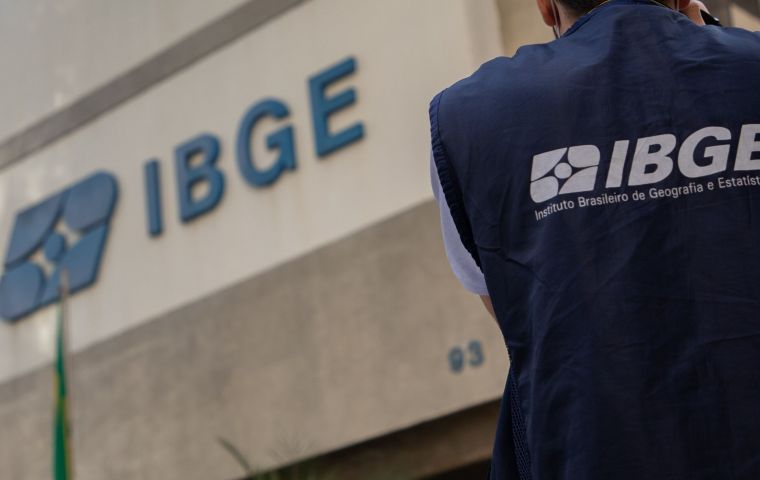MercoPress. South Atlantic News Agency
Brazil's inflation slows down, IBGE announces
 Over the past 12 months, official inflation reached 4.87%, exceeding the government's target, the IBGE warned
Over the past 12 months, official inflation reached 4.87%, exceeding the government's target, the IBGE warned The Broad National Consumer Price Index (IPCA) in South America's largest country stood at 0.39% in November, according to the Institute of Geography and Statistics (IBGE) survey released Tuesday, Agencia Brasil reported. The new figures represented a slowdown from October's 0.56%, which “does not indicate a drop in prices but rather a slower pace of increases” as food items kept driving the IPCA upwards.
Over the past 12 months, official inflation reached 4.87%, exceeding the government's target of 3%, with a tolerance range of ±1.5%age points. Year-to-date, from January to November, the IPCA has risen by 4.29%.
“If the IPCA exceeds 0.20% in December, it will surpass the target,” IBGE's Survey Manager André Almeida warned.
In November, food and beverages rose 1.55%, contributing 0.33 percentage points to overall inflation, with meat surging by 8.02%, accounting for a 0.20 pp impact on the index.
“The reduced availability of animals for slaughter, combined with increased export volumes, led to a decrease in the domestic supply of the product,” Almeida explained.
Transport was another factor driving inflation in November, which increased by 0.89%, contributing 0.13 percentage points to the overall IPCA. The main driver was the 22.65% surge in airline ticket prices, which saw the largest price increase among all products and services tracked by IBGE.
“The approach of the year-end and the numerous holidays in the month may have contributed to this increase,” said Almeida.
On the positive side of November's inflation, fuels saw a 0.15% decrease, driven by declines in the prices of ethanol (-0.19%) and gasoline (-0.16%).
Housing costs experienced negative inflation in November, with a 1.53% decrease, contributing 0.24 percentage points to the IPCA. This was mainly driven by a 6.27% drop in residential electricity prices, attributed to the yellow tariff flag on electricity bills in November, compared to the red tariff flag in the previous month.
The IPCA tracks the cost of living for households with incomes ranging from one to 40 minimum wages, with price data collected across the 10 largest metropolitan regions in the country.
The IPCA's performance is a key indicator for the country's basic interest rate, the Selic, which is set by the Brazilian Central Bank's Monetary Policy Committee (Copom).




Top Comments
Disclaimer & comment rulesCommenting for this story is now closed.
If you have a Facebook account, become a fan and comment on our Facebook Page!